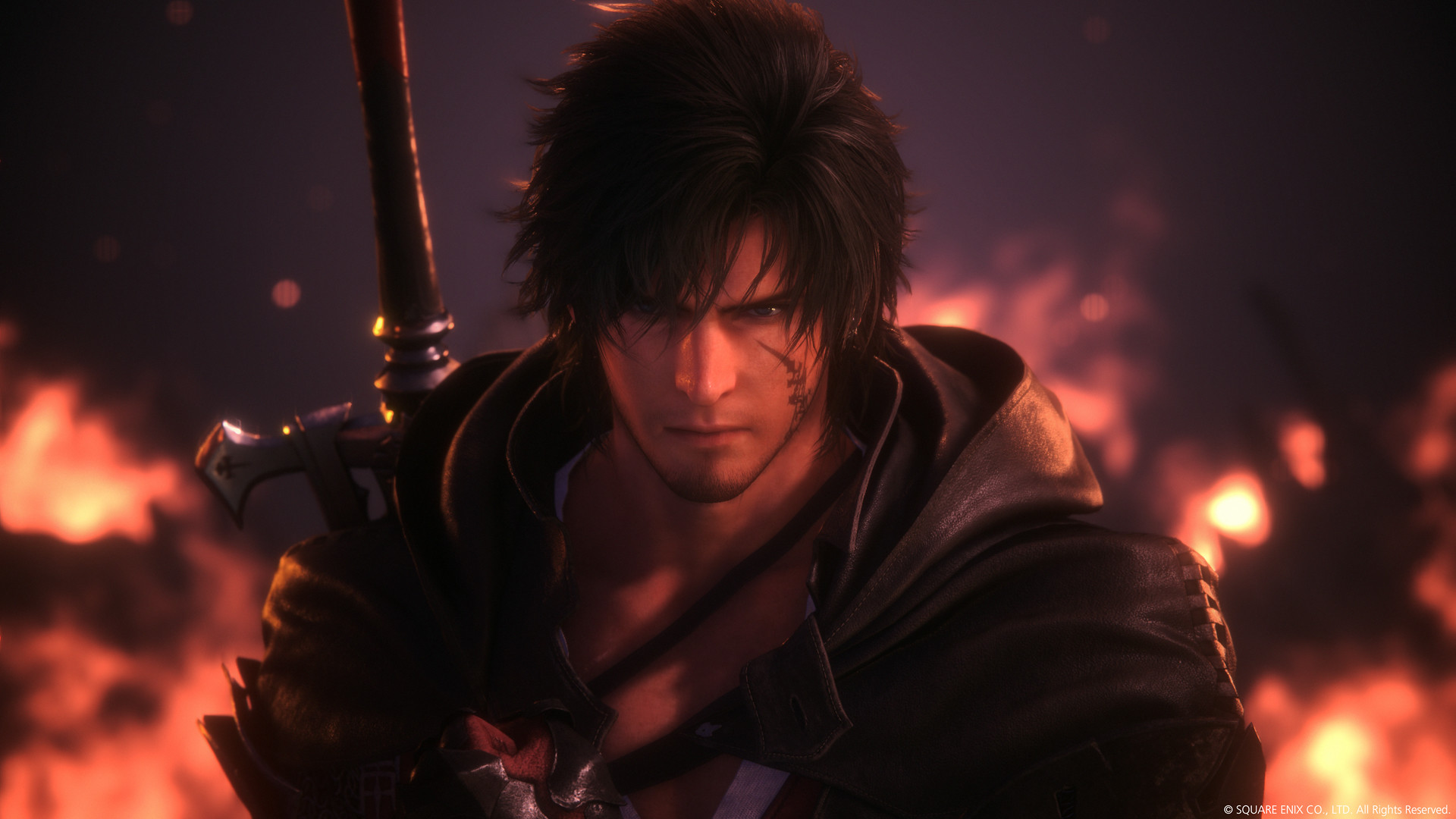The end of turn-based Final Fantasy was inevitable, but I'm still sad to see it go
Final Fantasy radically reinvents itself between instalments, but FF16's action focus feels like a point of no return.

The big centerpiece of Sony's E3 season State of Play this year was the new trailer for Final Fantasy 16, revealing its Summer 2023 release date and showing off titanic summons and action-heavy combat.
That last point is what I'd like to focus on—it looks rad as hell, with protagonist Clive Rosfield zipping around the battlefield like a rejected member of Devil May Cry 5's murderous twink boy band. Still, I find it hard to escape the feeling that this is the end of something—the Final Fantasy series' decisive move away from the turn-based combat that initiated its legacy and popularized a genre.
It's been a long time coming. Combat in 13 (and its sequels), 15, and the FF7 Remake is practically unrecognizable compared to the old Super Nintendo and PS1 games. Final Fantasy has always aggressively reinvented itself between numbered instalments, though, with individual games forming the anchors of mini-franchises of their own, most famously with the Compilation of Final Fantasy 7.
New Final Fantasy games preserve core concepts and mechanics while taking us to radically different settings. Each has pushed the bounds of what JRPG combat even looks like. Final Fantasy 15 and the remake of 7 already reached the point of being action-RPG hybrids—Tim Rogers' excellent (and very long) review of the Final Fantasy 7 Remake includes the critique that FF7R's devs almost seemed to have wanted to make a character action game instead. The menus, items, and upgrade systems basically serve an obfuscating, comforting purpose, as if to say: "This is still Final Fantasy, this is still a JRPG as you know it."
With recent mainline entries edging so close to full action game territory, perhaps it was time to cut the cord. For all its flaws, Stranger of Paradise: Final Fantasy Origin showed how well the monsters, aesthetics, and job system of classic Final Fantasy could gel with refined Team Ninja action.
FF16 shares Stranger of Paradise's commitment to the Final Fantasy aesthetic, putting the series' classic summons front-and-center of a story with the melodrama I've come to demand and so many proper nouns. In some ways it is still very much Final Fantasy.
Even with the series' gradual turn toward action, I've always felt there was still some continuity with prior games, but the high-flying, Bayonetta-esque gameplay on display with FF16 feels like a final curtain call on the turn-based combat puzzles that really hooked me. This is the true farewell to the OG of ATB.
The biggest gaming news, reviews and hardware deals
Keep up to date with the most important stories and the best deals, as picked by the PC Gamer team.
When I first played Final Fantasy 7 I felt cheated by the turn-based combat—I'd already watched clips of the high-flying anime bullshit from its feature-length movie sequel, Advent Children, you see, and the game was a hair more subdued. These days I not only appreciate that unique pace and mechanical depth, I also relish the contrast between the Final Fantasy 7's cinematic aspirations and the reality of what Squaresoft could pull off at the time. It's a charming relic of technical restraints, which you don't really see in games anymore. The falling away of certain aesthetic and mechanical styles born of technological limitations was probably fate, but I can still mourn their passing.
At least there's always Dragon Quest, baby. Number 12 is on the way and you know that if Yuji Hori turned it into an action RPG all of Japan would riot. Hell, I would too! If the unthinkable happens, catch me with a wrathfully nostalgic crowd pelting his car with our 3DS XLs.
Ted has been thinking about PC games and bothering anyone who would listen with his thoughts on them ever since he booted up his sister's copy of Neverwinter Nights on the family computer. He is obsessed with all things CRPG and CRPG-adjacent, but has also covered esports, modding, and rare game collecting. When he's not playing or writing about games, you can find Ted lifting weights on his back porch.

